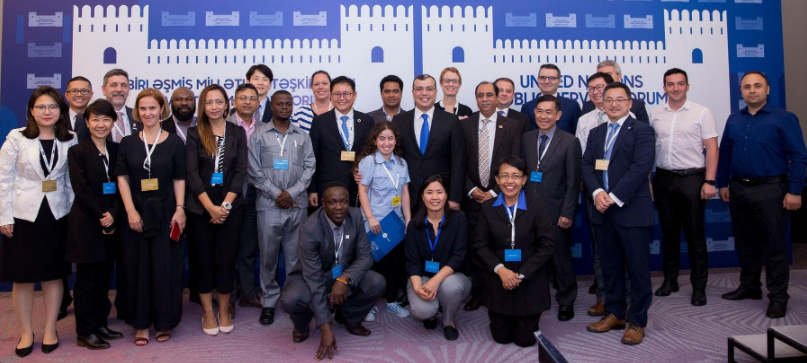
DPIDG, through its Project Office on Governance, organized the Workshop on “Government Innovation for Social Inclusion of Vulnerable Groups” with participants diversely represented from LDCs, SIDS, LLDCs and middle- and low-income countries. The theme of this workshop is highly relevant to pursuing the overarching principle of leaving no one behind in the context of SDG implementation. This workshop was structured with an aim to review different dimensions of promoting social inclusion of vulnerable groups.
Participants had comprehensive discussions on the challenges of identifying vulnerable groups due to complexity in defining vulnerabilities, which calls for high quality disaggregated data on vulnerable groups. This Workshop highlighted that gender is a cross-cutting issue and governments should always keep the gender issue at the core of public service delivery and social inclusion. Participants also discussed how to improve access to public service delivery and engagement of vulnerable groups with emphasis on the special needs of persons with disabilities and older persons.
The Workshop noted that new technologies, including IoT, AI and blockchain, have provided huge potential for government institutions to better serve and engage vulnerable groups. Participants urged that government officials improve their digital literacy and capacities in better leveraging new technologies while be mindful of protecting privacy and respecting dignity of vulnerable groups.
Participants agreed that it is important to create an enabling ecosystem for social inclusion. And governments, across all agencies, should work in close collaboration with private sector and civil society organizations which advocate the rights of vulnerable groups – through economic incentives such as tax break and promoting corporate social responsibilities.
The Workshop underscored the essential roles of local governments in promoting social inclusion of vulnerable groups and local government officials have to change their mindsets and improve their capacities including digital skills and innovate in government operations.
More importantly, the Workshop emphasized the importance of institutionalizing the inclusion of vulnerable groups in consultation and policy making process while ensuring such inclusion and engagement meaningful and effective.
Read more (URL : http://unpog.org/page/sub3_1_view.asp?sn=323&page=3&search=&SearchString=&BoardID=0002)
 Bienvenue aux Nations Unies
Bienvenue aux Nations Unies